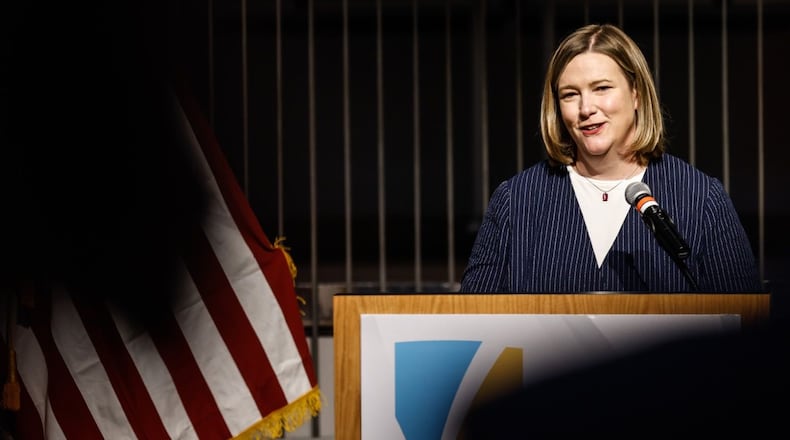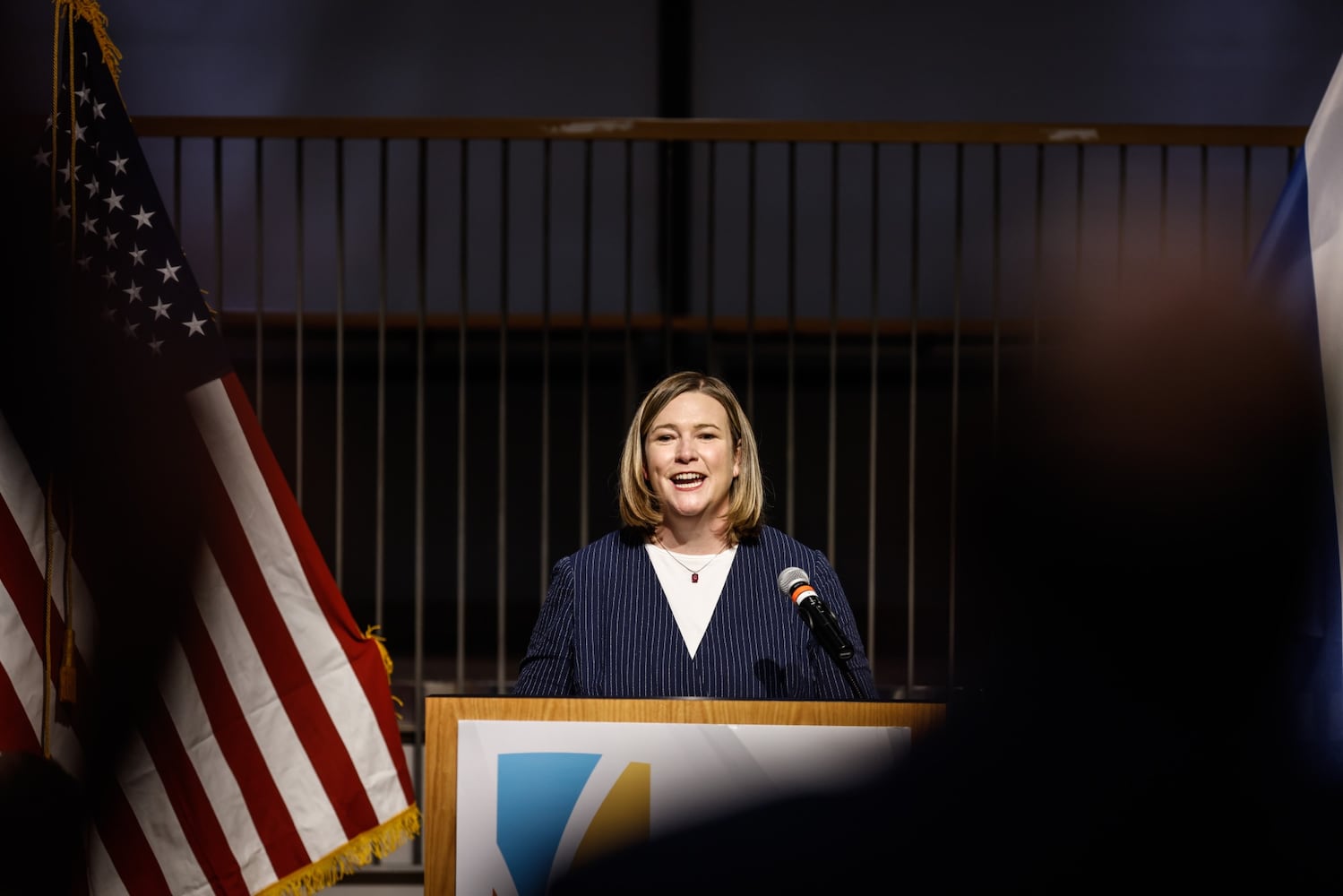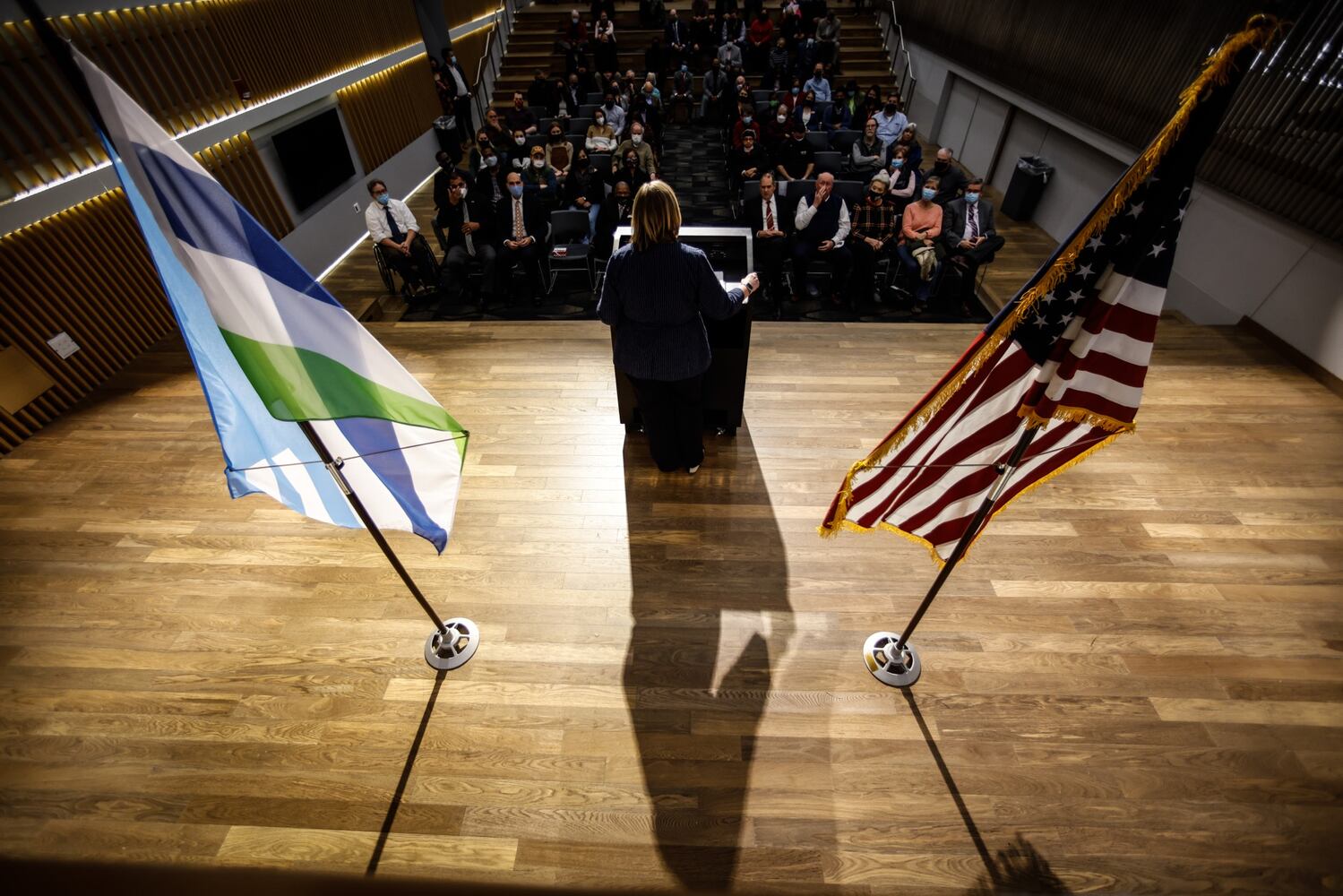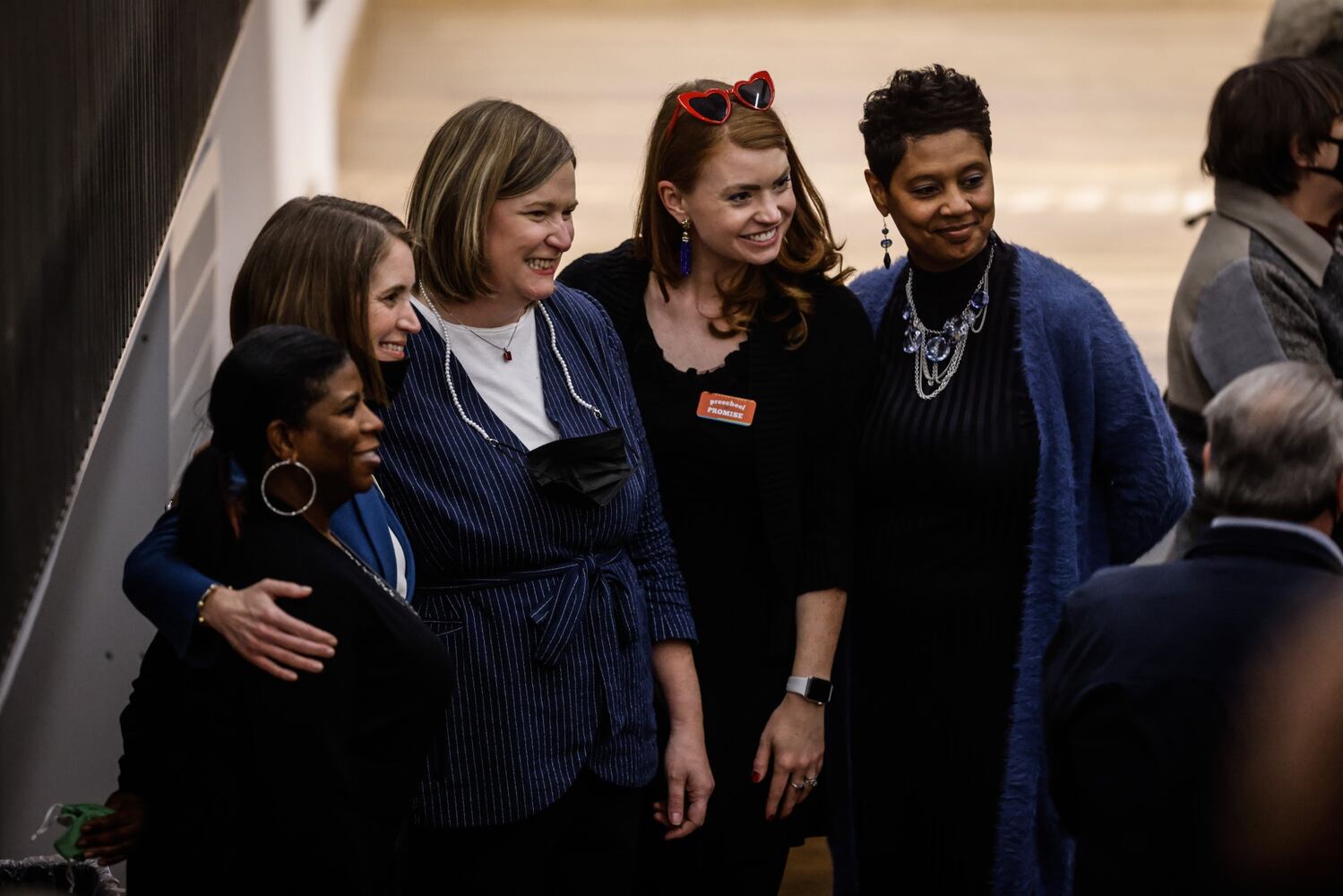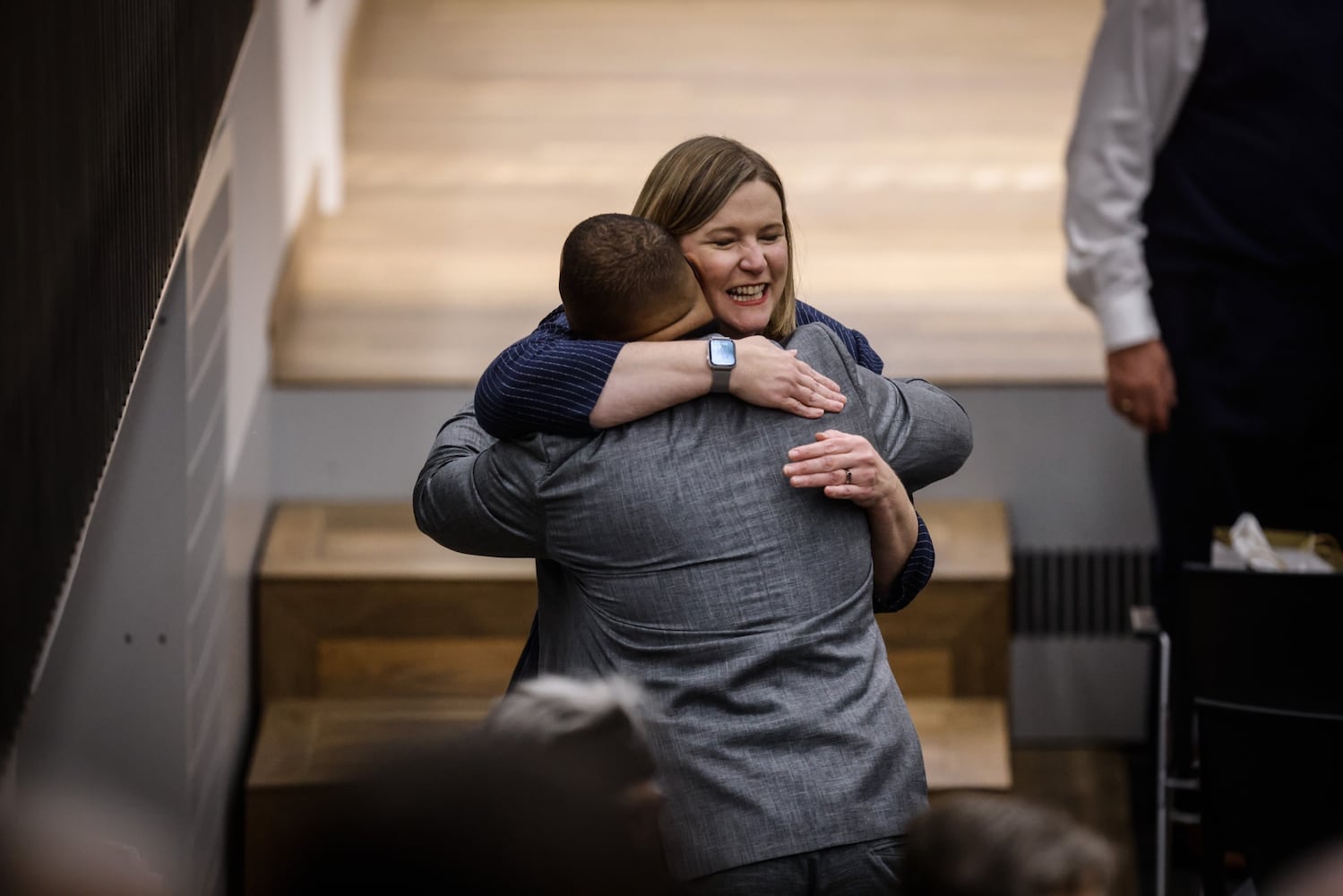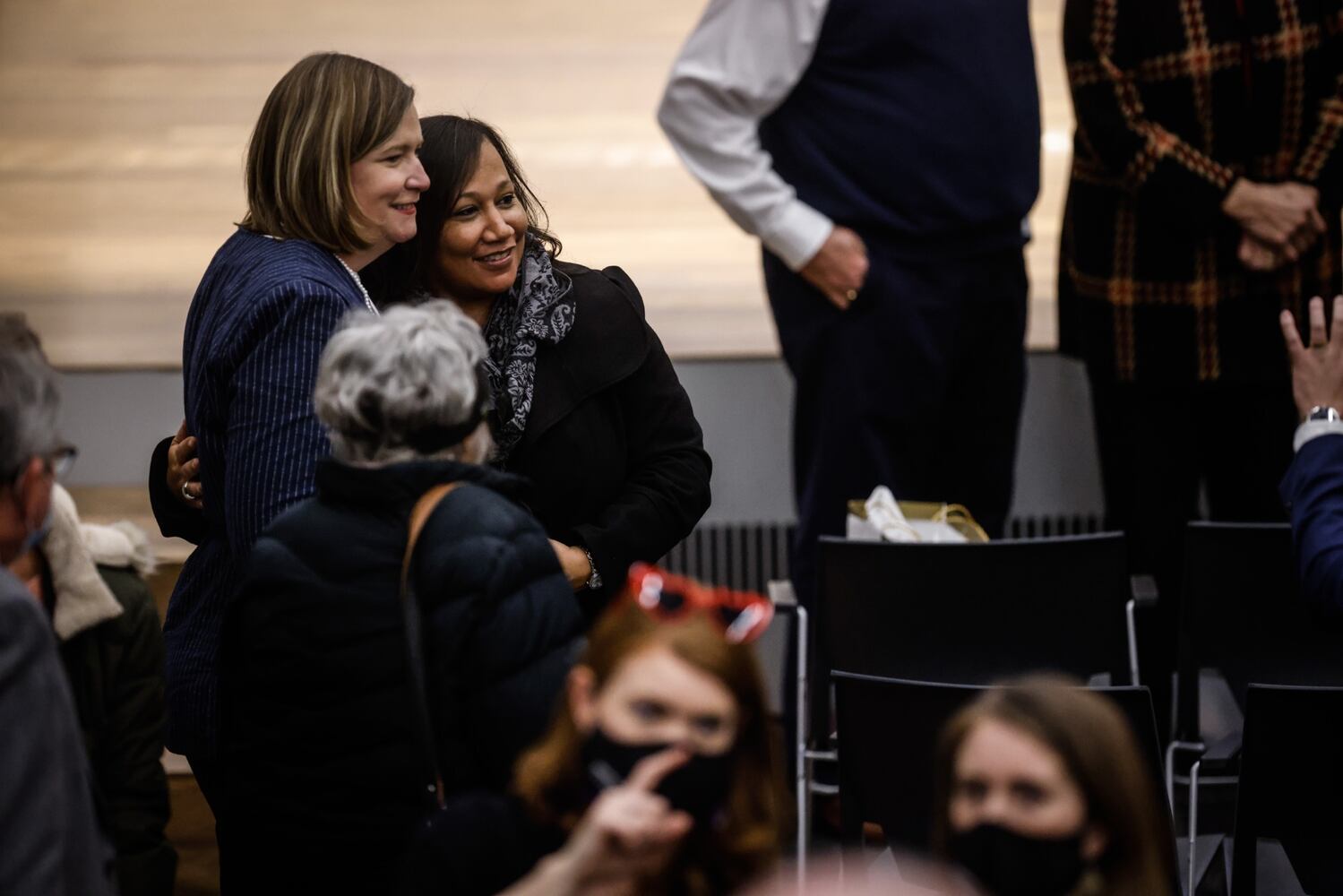“It’s been quite the eight years, and I’m so incredibly proud of what we have accomplished for Dayton,” Whaley said, speaking at the downtown Dayton Metro Library branch. “You probably noticed that elected officials say ‘we’ a lot, because this really is a team effort.”
In her time in the mayor’s office, the city of 140,000 went through an opioid crisis, a mass shooting, hate group rally, devastating tornado, and the ongoing COVID-19 pandemic.
Whaley highlighted policy successes, including expanded access to high quality preschool, supporting manufacturing, and championing the revival of the Dayton Arcade.
Chris Kershner, CEO of the Dayton Area Chamber of Commerce, said Whaley was good at working with diverse constituencies.
“She was masterful at bringing people together from both sides of the aisle, from different viewpoints and coming up with compromise,” Kershner said.
That will be important if Whaley is to reach her next goal — winning first a Democratic primary, then the general election for governor. When she announced her run in April, she vowed tough action to fix political corruption in Columbus and create better wages and jobs for working Ohioans.
Whaley, whose mayoral term ends in early January, said Dayton and its people have taught her how to be a tough and gritty leader who gets results.
After the August 2019 mass shooting, where a shooter killed nine people in the Oregon District, Whaley recalled standing in front of the crowd that had gathered in mourning on Fifth Street that night.
“I looked at all the faces in the crowd from the stage, and what I saw made me stronger. In your faces I saw terrible sorrow, but I also saw incredible resolve,” Whaley said.
Credit: Ty Greenlees
Credit: Ty Greenlees
After the brutal 2019, Whaley said some city officials talked about looking forward to 2020, but “little did we know what kind of global crisis we would face.”
“Through it all, people in Dayton stepped up just like they always do,” she said.
The outgoing mayor spotlighted the 2016 vote when residents passed Issue 9, an 8-year, 0.25% earned income tax, which she said led to investments that are already paying off.
“We’ve made improvements to parks and playgrounds all across the city. We’ve repaved hundreds of miles of roads and mowed thousands of vacant lots, improving the basic quality of our neighborhoods,” Whaley said. “Most importantly, we’re seeing an improvement in our kids and in just a few short years we’ve already witnessed significant growth in students’ kindergarten readiness scores.”
Political start
Originally from Indiana, Whaley moved to the city to attend the University of Dayton, from which she graduated in 1998. She lives in the Five Oaks neighborhood with her husband Sam.
She started the UD College Dems chapter and served as chair of the statewide Ohio College Democrats group. While in office as mayor, she also helped found the Ohio’s Mayors Alliance.
She became the youngest woman ever elected to the Dayton City Commission (at the age of 29). She served two terms on the city commission before being elected mayor in 2013.
Whaley had jumped into the previous Democratic primary for governor, but dropped out in January 2018 and backed Richard Cordray, who then lost to Republican Mike DeWine.
Also while in office, she and the city administration dealt with a federal corruption probe. The investigation resulted in convictions of a former city commissioner, former city employee and former state lawmaker. Another trucking company owned by a former mayor of Trotwood also pleaded guilty.
An unsealed search warrant shows that years ago, the FBI investigated claims that Whaley took bribes, but the case was closed and no charges were filed. When reports of the warrant came out this year, Whaley said no payments took place and “seven-year-old claims are baseless and categorically untrue.”
Ongoing work
Whaley said Dayton is still too segregated and too unequal, adding, “one of the most challenging issues I’ve had to deal with as mayor is the relationship between the community and police.”
She said the five groups currently working on police reform have come up with more than 140 recommendations.
“That’s the Dayton I love. When faced with some of the toughest issues, folks were willing to work with people they didn’t always agree with to find common ground on recommendations that will make our city safer and more just,” Whaley said.
After Whaley leaves office, mayor-elect Jeffrey Mims will take office, after serving on city commission.
“Her leadership style and her team skills helped create one of the strongest commissions we’ve had probably in decades,” Mims said of working with Whaley over the years.
“Everything we’ve done so far is just the first step, and I can’t wait to see what comes next,” Whaley said.
Timeline
- November 2005: First elected to the Dayton City Commission
- November 2013: First elected Dayton mayor
- May 2017: Entered Democratic primary for governor
- January 2018: Dropped out of race and backed Richard Cordray
- November 2017: Re-elected as Dayton mayor
- January 2021: Announced she will not run re-election as mayor
- April 2021: Announced run for Ohio governor
About the Author
